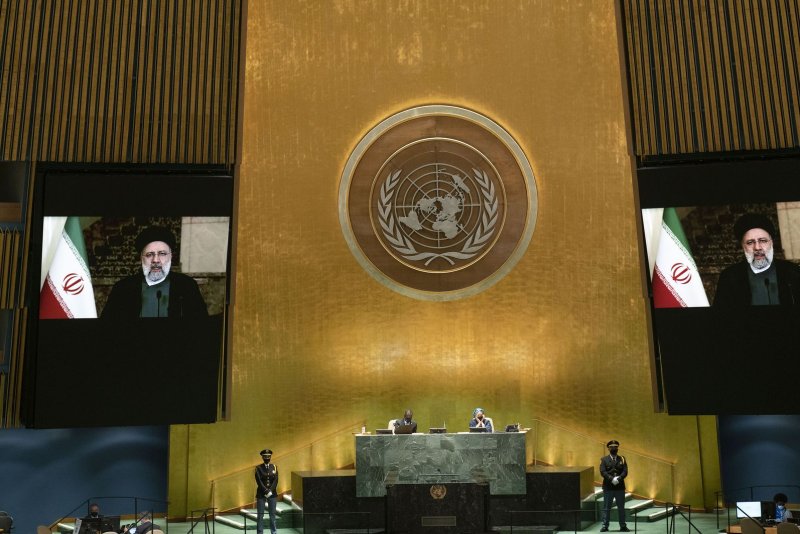1 of 5 | Iran's President's Ebrahim Raisi remotely addresses the 76th Session of the U.N. General Assembly on Tuesday, September 21, 2021 in New York City. Photo by Eduardo Munoz/UPI |
License Photo
Sept. 25 (UPI) -- Iran's top diplomat said that the country wants to resume nuclear talks with the U.S. "very soon," but called on President Joe Biden to first lift economic sanctions.
Hossein Amirabdollahian, the country's foreign minister, said in an interview with NBC News that sanctions kept in place by the Biden administration are a "negative sign" to reviving the 2015 nuclear deal.
"They say, 'We are ready to return to the fulfillment of our commitments.' However, there is no action taken in order to show and prove the true will to the new Iranian administration, to the Iranian nation," Amirabdollahian said. "And worse than that, simultaneously, they have managed to put on new sanctions."
President Donald Trump withdrew from an agreement three years ago that lifted sanctions on Iran in exchanging for curbing its nuclear program. Biden has previously stated that he's open to diplomacy with Iran.
Amirabdollahian was named foreign minister by the Islamic republic's new president, Ebrahim Raisi, a hardliner who was elected in June. Amirabdollahian made his remarks during a trip to New York to attend the United Nations General Assembly.
Speaking to reporters during the trip, he said the U.S. has sent contradictory signals on restoring the agreement, reports Bloomberg news.
Amirabdollahian said sanctions are preventing the country from accessing funds from South Korean and Japanese banks that could be used to buy vaccines against COVID-19.
U.S. Secretary of State Antony Blinken told reporters on Thursday that time was running out to salvage the deal, according to Bloomberg.
"With every passing day, as Iran continues to take actions that are not in compliance with the agreement -- particularly building larger stockpiles of highly enriched uranium to 20%, even to 60%, and spinning faster centrifuges," he said.















